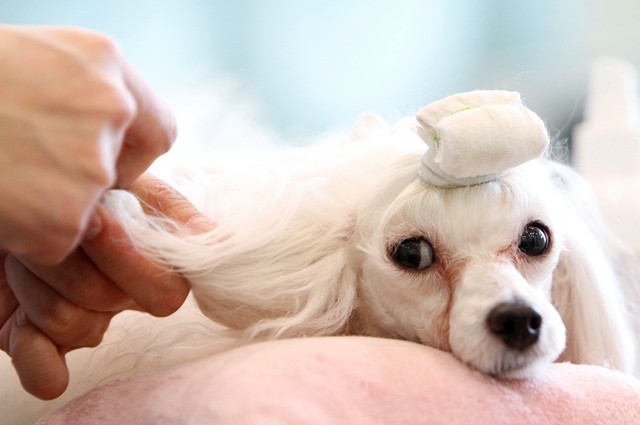There's a new trend among city dwellers in China: More and more Chinese people are becoming enamored with pets. Having a pet isn't only a status symbol or an indicator than one is living quite comfortably. It also eases the loneliness and stress that the city life can bring.
Franches Chen, a Shanghai bank employee, splurges a fifth of her monthly income on her pet poodle, Cookie. Aside from taking Cookie to a pet groomer for a weekly shower, the 26-year-old young professional (who currently lives with her parents), also spends roughly 2,000 yuan ($320) a month for her pet's imported food.
"In big cities like Shanghai, many people feel lonely and treat pets like family," shared Zhao Huanhuan, a pet groomer. "People are now willing to spend on their pets as much as they are willing to spend on their parents."
"I want to give him the best," said Chen, "He's our kid. The only difference is that he can't speak human languages."
Chinese pet owners' dedication to their pets is not growing unnoticed by multinational companies such as Mars, Inc., Procter & Gamble Co., and Nestle S.A., all of which have significant presence in the country.
According to Euromonitor, a consultancy firm, China's pet care industry is predicted to grow by more than half to 15.8 billion yuan ($2.6 billion) by 2019. Dog food sales are also expected to increase to over $760 million.
Despite a huge and growing demand for pet food in China as more owners are feeding their pets proper pet food, supply remains low.
"Pet food penetration in China is very, very low," said Matthias Berninger, Mars, Inc.'s Global Head of Public Affairs. "People didn't believe chocolate would ever be something Chinese consumers would like, let alone that Chinese consumers would become passionate pet owners."
Aside from proper pet food and services, Chinese pet owners are also paying top yuan for pedigree dog breeds and accessories such as collars and costumes.
As a result, China's pet care industry is turning into one of the fastest growing markets in the world.



























